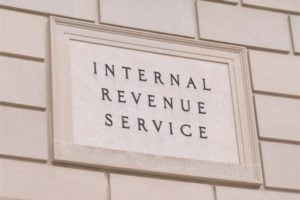
The IRS generally won’t levy your assets or garnish your wages while you are paying off your tax debt with an installment agreement. However, you must meet all the terms of your installment agreement to avoid a potential payment plan default.
Permitted Collection Actions
The IRS will refrain from most enforced collection actions if you enter into an installment agreement. However, there are a few collection actions that may continue at this time:
- Federal Tax liens may remain in effect during your payment plan. If you pay off your balance below $25,000, pay by direct debit, and meet other conditions, you may request a tax lien withdrawal.
- Your tax refunds may be seized and applied to your outstanding balance.
- In some cases, the IRS can levy assets using a jeopardy levy. This tactic isn’t used often and does not require the usual notice and appeal rights before the levy takes place.
The IRS won’t issue any bank account levies or wage garnishments once your installment agreement is approved.
When Collection Actions Are Prohibited
The IRS generally can’t levy your assets during any of the following:
- While you are making payments under an approved installment agreement.
- For 30 days after your payment plan is rejected or terminated.
- During the appeals process if you timely request an appeal for a payment plan rejection or termination.
If your plan is terminated and the 30-day period to request an appeal passes, the IRS can once again use its enforced collection powers against you.
Avoiding a Payment Plan Default
It’s important to remember that you need to do more than just make your monthly payments to avoid a default. You need to comply with all of your tax obligations. This could include making quarterly estimated tax payments and filing all of your tax returns on time.
If you own a business, you may have additional obligations, such as making payroll tax deposits. If you fall behind on any of these requirements, you could jeopardize your existing installment agreement.
If you do accidentally miss a payment, you do have a chance to avoid default. The IRS must send you a notice before terminating your agreement, and you can generally correct the default within 30 days to avoid a payment plan termination.
Contact a tax attorney for help negotiating an IRS payment plan or avoiding a payment plan termination.
The Gartzman Law Firm can help you with back taxes and other IRS tax problems. Use our contact form to request a consultation with an Atlanta tax resolution attorney.

